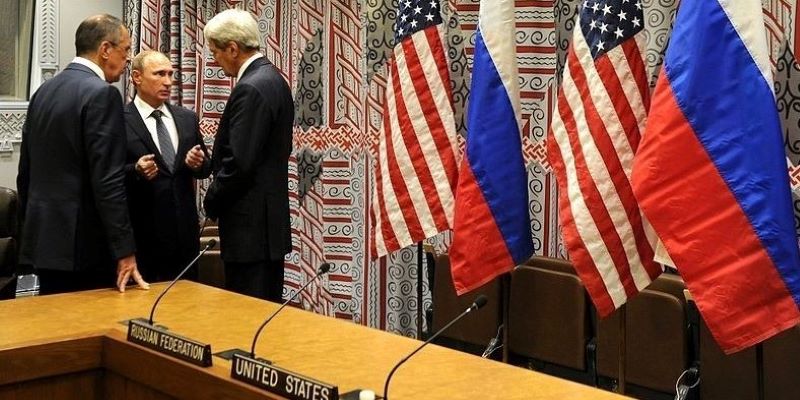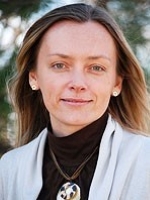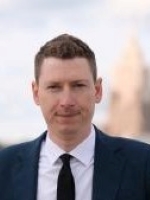May 21, 2021
@
10:30 am
–
12:00 pm

The Fletcher School of Law and Diplomacy at Tufts University and the Moscow State Institute of International Relations (MGIMO) of the Russian Federation Ministry of Foreign Affairs welcome you to a roundtable discussion among U.S. and Russian experts about the current state of the bilateral relationship. The event will be chaired by Professors Chris Miller and Maxim Suchkov. Please make sure to register via myFletcher to participate in the event on Zoom.
Questions:
- Has the downward spiral in relations between the United States and Russia reached a point of no return? What are the prospects for the proposed upcoming summit between presidents Joe Biden and Vladimir Putin?
- Does the recent extension of the New START nuclear arms control agreement bring hope for the bilateral strategic stability dialogue?
- Is it possible for the United States and Russia to de-escalate the conflict in eastern Ukraine and defuse political unrest in Belarus?
- Will allegations of cyber espionage and subversion continue to plague the bilateral relationship? Have the United States and Russia hit rock bottom when it comes to tit-for-tat diplomatic expulsions and escalating rhetoric?
- Are Western sanctions against Russia working as intended? How will the latest round of U.S. sanctions affect Russia’s economy and foreign policy?
Speakers:
 | Daniel Drezner is Professor of International Politics at The Fletcher School and Co-Director of the Russia and Eurasia Program, a nonresident senior fellow at the Brookings Institution, and a contributing editor at The Washington Post. Previously he taught at the University of Chicago and at the University of Colorado at Boulder. He has held positions with Civic Education Project, the RAND Corporation, and the U.S. Department of the Treasury, and received fellowships from the German Marshall Fund of the United States, Council on Foreign Relations, and Harvard University. Drezner has written six books, including The Ideas Industry (2017) and The System Worked (2014). He has published articles in numerous scholarly journals as well as in The New York Times, Wall Street Journal, Politico, and Foreign Affairs, and has been a contributing editor for Foreign Policy and The National Interest. He received his B.A. in Political Economy from Williams College and his M.A. in Economics and Ph.D. in Political Science from Stanford University. |
 | Igor Istomin is an Associate Professor at the Department of Applied International Analysis at MGIMO. He is also currently Kathryn W. and Shelby Davis Senior Scholar at the Davis Center for Russian and Eurasian Studies at Harvard University. He teaches classes at MGIMO in methods of applied analysis of international affairs and has delivered lectures and presentations at many foreign institutions, including The Fletcher School. Istomin is an executive editor at International Trends, a leading Russian academic journal. He has authored more than 50 academic publications in the Russian and English languages on U.S. foreign policy, international security, and international relations in the Euro-Atlantic space. He is also an expert of the Russian International Affairs Council and the Foreign Policy Analytical Agency in Moscow and has contributed to numerous Russian and international news outlets. Istomin holds Ph.D. and M.A. degrees from MGIMO and an undergraduate degree from Saint Petersburg State University. |
 | Oxana Shevel is an Associate Professor in the Department of Political Science at Tufts University. Her research and teaching focus on the post-Communist region surrounding Russia and issues such as nation- and state-building, the politics of citizenship and migration, memory and religious politics, and challenges to democratization in the post-Soviet region. She is the author of Migration, Refugee Policy, and State Building in Postcommunist Europe (2011), which examines how the politics of national identity and strategies of the United Nations High Commissioner for Refugees shape refugee admission policies in the post-Communist region, leading countries to be more or less receptive to refugees. Shevel’s current research projects examine the sources of citizenship policies in the post-Communist states; church-state relations in Ukraine; the origins of separatist conflict in Donbas; and memory politics in post-Soviet Ukraine. Shevel holds a Ph.D. in Government from Harvard University, an M.Phil in International Relations from the University of Cambridge in England, and a B.A. in English and French from Kyiv State University in Ukraine. Prior to coming to Tufts, she taught at Purdue University and held post-doctoral appointments at the Davis Center for Russian and Eurasian Studies and at the Harvard Ukrainian Research Institute. |
 | Andrey Baklitskiy is a Senior Research Fellow at the Center for Advanced American Studies at the Institute of International Studies at MGIMO. He also serves as a Consultant at PIR Center in Moscow, a member of the Deep Cuts Commission, and an expert at Valdai Discussion Club. He previously served as a Visiting Research Fellow at CSIS in Washington, D.C. and a Research Fellow at the Center for Global Trends and International Organizations of the Diplomatic Academy of the Russian Federation Ministry of Foreign Affairs. Baklitskiy is a columnist for the Russian newspapers RBC and Kommersant and the website of the Carnegie Moscow Center. Baklitskiy has previously served as the “Russia and Nuclear Nonproliferation” Program Program at PIR Center. He was the Editor-in-Chief of the monthly e-bulletin “Yaderny Kontrol” (“Nuclear Control”). He took part in the sessions of the Nonproliferation Treaty Preparatory Committee in 2013-2014 and the Review Conference in 2015. Baklitskiy holds a specialist degree in regional studies from the Ural Federal University. He has taught courses on nuclear nonproliferation and emerging technologies. He regularly contributes to Russian and international media and has authored numerous articles and reports. His research interests include nuclear arms control, nuclear nonproliferation, the Iranian nuclear program, and U.S.-Russian strategic relations. |






